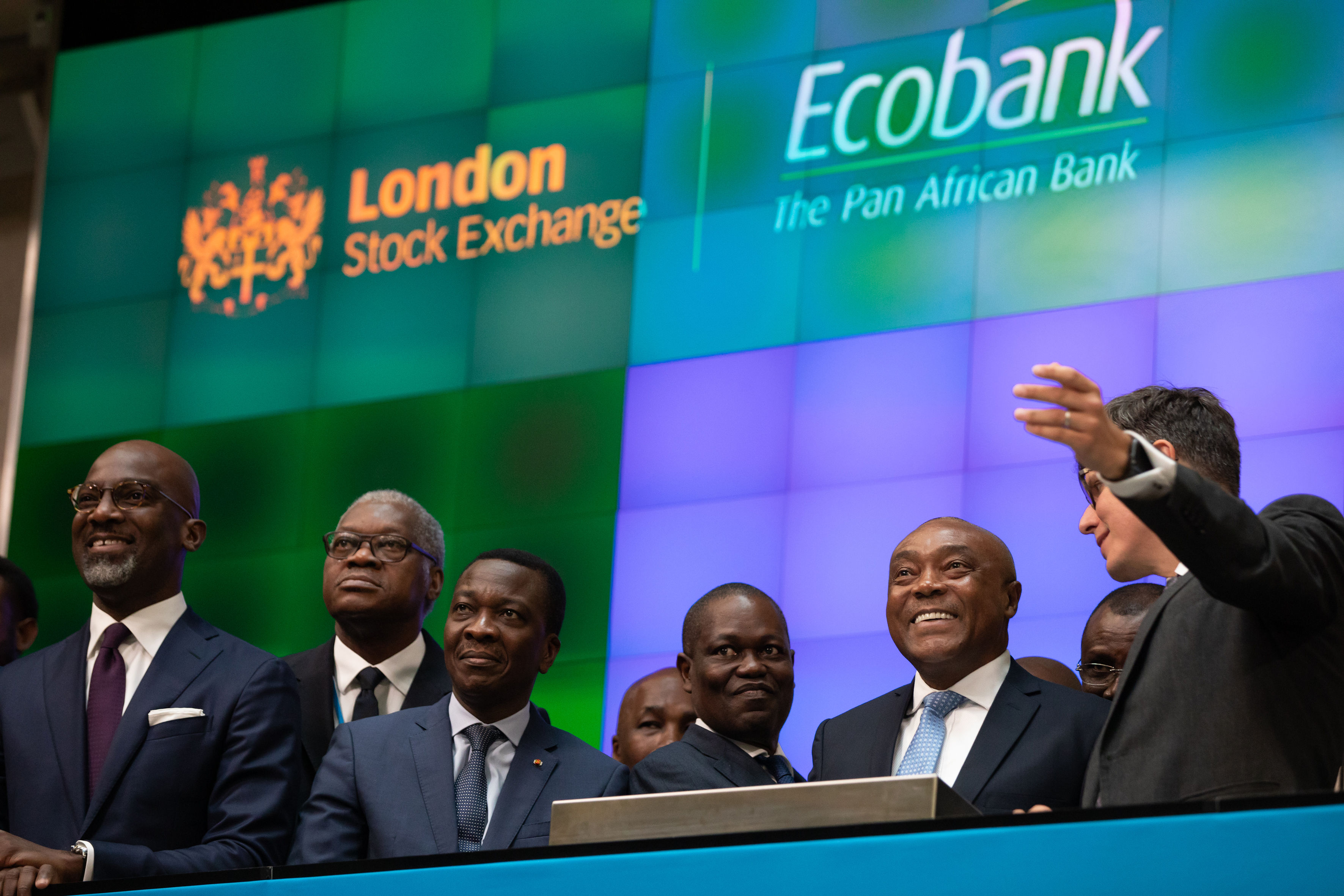The Pan African lender, Ecobank Transnational Incorporated, on December 1, 2022, released its Q3 2022 results; reporting a 2.37% year-on-year rise in profit before tax on the back of growth across its income lines.
It also recorded the highest quarterly interest income of N168.619 billion, more than it did in Q1 and Q2. And on the heels of that, profit before tax rose 29% year-on-year to N52.071 billion, while net revenue increased 10% to N180.540 billion.
Though profit after tax from continuing operations declined by 4.34% to N40.192 billion on the back of higher tax expenses from other geographic reporting segments, it still affirms the bank’s consistent earnings over the years.
For instance, the Q3 earnings history of the bank over the past 5 years has a growth rate of 14.65%, while the annual earnings history over the past 5 years has a compound annual growth rate (CAGR) of 15.97%.
Also, the Q3 2022 results affirm the bank’s strong revenue diversification supported by a broad geographic footprint across four reporting regions and noteworthy non-interest income of 45.46% of the operating income in 9M 22.
The Pan African lender with subsidiaries spanning 33 Sub-Saharan Africa (SSA) countries saw its assets up $25.6 billion or N11.207 trillion as of September 30, 2022, making it one of the largest banking groups on the continent outside of South Africa
- In a statement, Ecobank Group CEO Ade Ayeyemi explained the reasons behind the results. “These results reflect the resilience, strong brand and diversification of our pan-African franchise. We saw decent client activity in consumer and wholesale payments, trade finance and foreign currency markets. Additionally, despite inflationary pressures, we maintained a tight lid on costs, thereby improving our cost-to-income ratio to 56.3% from 58.3% in the previous year.
However, it is important to note that EcoBank Nigeria contributed only 13.59% ($184 million) to the group’s net revenue; the least among the four main regions.
Following the release of the Q3 results on December 1, 2022, the share price has appreciated by 11.44%, closing at N11.20 on December 9, 2022, with a YTD gain of +28.74%, outperforming the NG Banks industry and NGXASI.
In retrospect: The bank started 2022 on a cautious note following the IMF’s plan to cut the global growth forecast due to the high inflationary and high-interest rates environment.
- But following the successful implementation of its ‘Execution Momentum Strategy’ and supported by rising interest rates, the bank recorded a strong earnings performance in the first half of 2022.
- The group’s profit before tax printed at N108.956 billion, representing a 28% increase from N85.324 billion a year earlier.
- On a quarterly analysis, Q1 2022, revenue missed analyst estimates by 4.7%, while earnings per share (EPS) exceeded analyst estimates by 61%. In Q2, EPS went up 50% to US$0.003O.
- Overall, despite the decline in profit after tax from continuing operations in Q3, profit after tax from continuing operation in 9M 2022, came in at N117.405, representing a 13.07% increase compared to 9M 2021.
Cost Perspective: Overall, we expect the Bank to continue to improve on its revenue drive and cost containment to reduce its cost-to-income ratio further.
- Though its cost reduction plan ‘One Bank’ ‘Manufacture Centrally, Distribute Locally’ strategy seems to be yielding results considering the declining trend of its cost-to-income ratio, it is still high at 56.3%.
Focus on the Nigeria region: According to Fitch Ratings in June 2022, Ecobank Nigeria has the weakest profitability of all Nigerian commercial banks based on narrow net interest margin and loan impairment charges.
- The region contributed the least to the group’s net revenue, partly affecting the region is the low growth rate in non-interest income. Ecobank Nigeria grew its non-interest income by only 4% even with the support of the one-off gain of $21.5 million from the sale of Ecobank Nigeria’s old head office building and other non-core properties.
- Its profit of $23.9 million in the first 9 months of the year is against a total asset of $6.2 billion or 0.5% annualized. For context, Zenith did 2.7% last year.
- Cost-to-income ratio though improved slightly to 77.9% from 79.6% in the prior year, is still higher than the group’s cost-to-income ratio and a drag on the group’s earnings
- The region’s Net impairment charges on loans at $13 million compared to $8 million in the prior year is high.
Valuation: Over the past 5 years, the bank has consistently grown its earnings accumulating $1.198 billion in profits. As ETI is profitable we used its price-to-earnings ratio for relative valuation analysis.
- Based on its price-to-earnings ratio (2.2x) compared to the peer average (3.8x), the African Banks Industry average P/E ratio of 5.5x and NG Market (6.9x), indicates that at the current price, the stock is cheaper relative to its earnings potentials, its peers and the market.
- Invariably the P/E ratio is pinpointing that Ecobank’s share price is undervalued.












Ecobank Plc should rework their current retail banking strategies to place emphasis on special savings account products and consumer loans with a focus on pricing prospective customers from competition